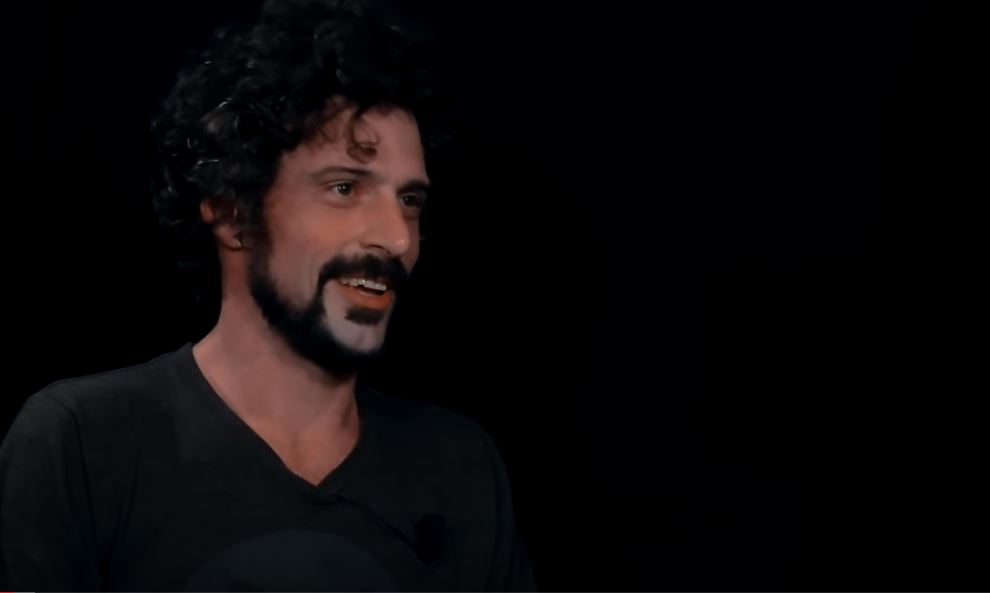Brett Scott and Paul Buitink; The cashless society and crypto-currency
Paul Buitink talks to Brett Scott, author of The Heretics Guide to Global Finance – Hacking the Future of Money about the dangers of the cashless society. They also discuss the potential of crypto-currencies.
After unsuccessfully applying for a job at Lehmann’s Brothers, Brett eventually worked a few years as a derivative broker. He then wrote his book as a guide on how to build alternatives to money, written with an anthropological lens.
A lot of articles written about the cashless society are usually very one-sided and positive, with a poor understanding of the monetary system. For that reason Brett started writing about it to provide a counter-balance. It resonated well with conservatives and activists.
Who are the victims of the war on cash? Elderly cling on to nostalgia, they’re used to the old system. The anti-surveillance activists on the other hand worry about privacy. There is also the risk of exclusion, for example for refugees. Other people worry about censorship. In general, by using banks, any transaction requires a third person, not just a buyer and seller anymore. Final argument against a cashless society is that a centralized monetary system is less resilient. The more powerful a system the more vulnerable to cyber attacks.
The war on cash is waged by a group of actors such as banks, payment companies and government agencies. The latter both for tax purposes and to be able to charge negative interest.
Paul counters that most shop owners actually like cash since it’s safer and they get to know their customers.
Brett thinks the government needs to take a wider view and take the whole system into account, not just individual experience of the user. Brett makes the comparison with the early auto-industry fighting horse carts. We should look at the bicycle industry instead. We still use them despite having cars.
Should the government provide anonymous, digital cash? Battle right now is between State cash and bank money. States at least have the public responsibility to think about these rights. Banks would be upset though.
Brett thinks crypto-currency is a quasi-money system, it’s just a digital token. It doesn’t have stability or wide-spread acceptance. The crypto advocates have a different understanding of the money system compared to the original alternative money people. Crypto also has scaling problems.
Hybridize crypto with original alternative currency movements like mutual credit systems says Brett. That would really concern central banks. Right now they’re not concerned. They just see it as a speculative asset.

We besloten bij de geboorte van Café Weltschmerz non-profit te zijn en dat willen we ook blijven. Wij willen onafhankelijk zijn van de overheidssubsidie’s en sponsoring, van politieke- en commerciële invloed, maar tegelijkertijd onze content wel voor iedereen beschikbaar houden. Om dat te kunnen blijven doen, vragen wij jullie hulp met een regelmatig klein of een eenmalig substantieel bedrag. Grotere bedragen kunnen via een ANBI-regeling. Met jullie bijdrage kunnen we Café Weltschmerz in de lucht houden, om in deze bizarre tijden vol desinformatie, tegenspraak blijvend te faciliteren.
Help Café Weltschmerz met een donatie of adopteer een aflevering: NL23 TRIO 0390 4379 13.
[contact-form][contact-field label=”Naam” type=”name” required=”true” /][contact-field label=”E-mailadres” type=”email” required=”true” /][contact-field label=”Website” type=”url” /][contact-field label=”Bericht” type=”textarea” /][/contact-form]




Lees onze huisregels ook even. Wilt u ook meediscussiëren maar bent u nog geen lid? Meld u dan hier aan en geniet van alle voordelen.